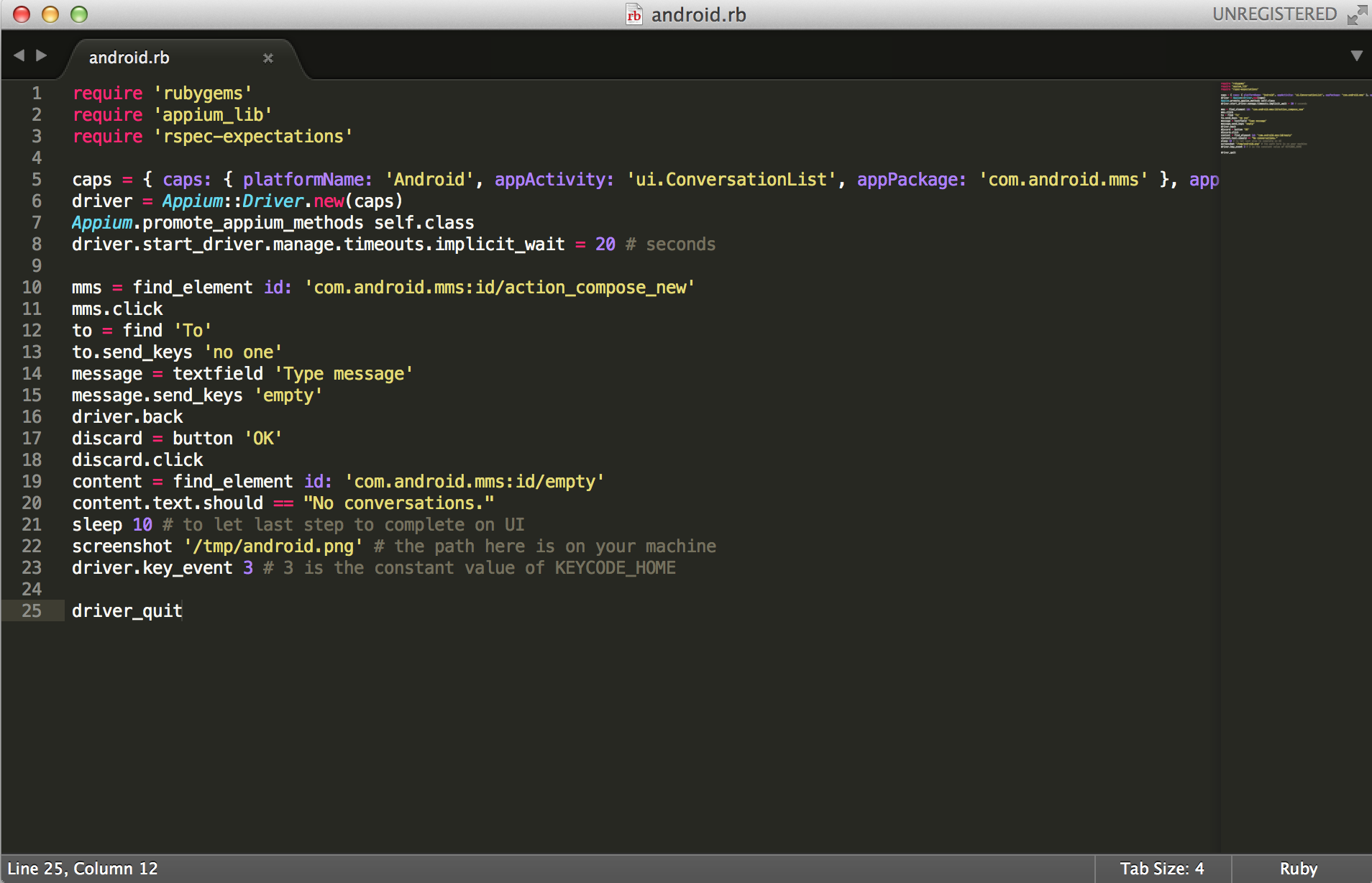- About the author
- Questions and Issues
- Edit and Contribute
- Introduction
- 1. Environment Setup
- 2. Execute appium demos of iOS and Android
-
3. Use appium inspector and similar tool to locate element and record script
- 3.1. Tools needed
- 3.2. Precondition of using inspector and recording script for iOS
- 3.3. Use appium inspector to locate iOS element and record script
- 3.4. Precondition of using inspector and recording script for Android
- 3.5. Use appium inspector to locate Android element and record script
- 3.6. Use uiautomatorviewer to locate Android element
- 3.7. Use Genymotion instead of Android AVD for emulator
- 4. Write script for iOS app
- 5. Migrate iOS script into Cucumber features
- 6. Write script for Android app
- 7. Migrate Android script into Cucumber features
- Generated using GitBook
Add assertion
In test script, an important stpe is to assert/verify result.
To support assertion, we need to import 'rspec-expectations' on top of our script:
require 'rubygems'
require 'appium_lib'
require 'rspec-expectations'
And in the steps, we can add an assertion to check the message shown on center after discarding message.
content = find_element id: 'com.android.mms:id/empty'
content.text.should == "No conversations."
Now the script should look like:
require 'rubygems'
require 'appium_lib'
require 'rspec-expectations'
caps = { caps: { platformName: 'Android', appActivity: 'ui.ConversationList', appPackage: 'com.android.mms' }, appium_lib: { sauce_username: nil, sauce_access_key: nil } }
driver = Appium::Driver.new(caps)
Appium.promote_appium_methods self.class
driver.start_driver.manage.timeouts.implicit_wait = 20 # seconds
mms = find_element id: 'com.android.mms:id/action_compose_new'
mms.click
to = find 'To'
to.send_keys 'no one'
message = textfield 'Type message'
message.send_keys 'empty'
driver.back
discard = button 'OK'
discard.click
content = find_element id: 'com.android.mms:id/empty'
content.text.should == "No conversations."
sleep 10 # to let last step to complete on UI
screenshot '/tmp/android.png' # the path here is on your machine
driver.key_event 3 # 3 is the constant value of KEYCODE_HOME
driver_quit

You can refer to the Android script from here.
We will migrate this script to Cucumber feature in next chapter.